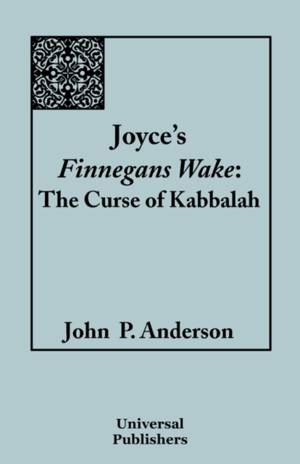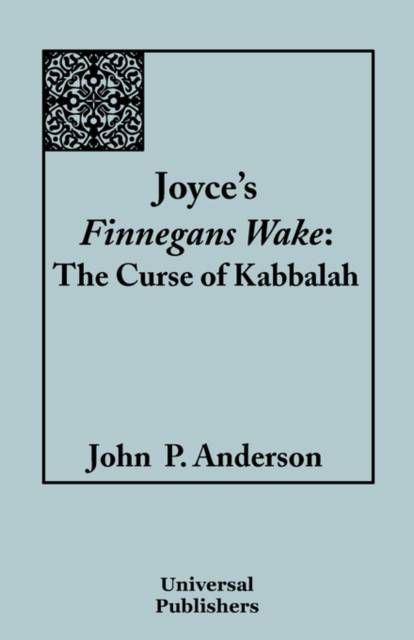
Je cadeautjes zeker op tijd in huis hebben voor de feestdagen? Kom langs in onze winkels en vind het perfecte geschenk!
- Afhalen na 1 uur in een winkel met voorraad
- Gratis thuislevering in België vanaf € 30
- Ruim aanbod met 7 miljoen producten
Je cadeautjes zeker op tijd in huis hebben voor de feestdagen? Kom langs in onze winkels en vind het perfecte geschenk!
- Afhalen na 1 uur in een winkel met voorraad
- Gratis thuislevering in België vanaf € 30
- Ruim aanbod met 7 miljoen producten
Zoeken
€ 48,45
+ 96 punten
Uitvoering
Omschrijving
This non-academic author presents his key to opening James Joyce's infamously difficult and endlessly playful novel Finnegans Wake. The key was fashioned in Kabbalah, an ancient Jewish mystical tradition that as interpreted by Joyce champions independent individualism as the path to the highest spirituality. Kabbalah images a universe excreted by the ultimate god, a universe that is necessarily finite and limited that came with its own secondary god that is finite and limited, the god presented in Genesis that issues blessing and curses designed to make mankind fearful and dependent- the curse of Kabbalah. Joyce laid this curse in his dream-like "Book of the Night" in the elastic way that the latent or hidden content of a dream distorts the presentation of dream materials. Acting like a black hole, this curse pressures the main character Harold Chimpden Earwicker to "fall," to become fearful and dependent just like everyone else, that is reduced to the mere initials HCE for "Here Comes Everybody." Joyce traces this curse from the myths in Genesis to the primal horde, the first social organization of humans, to the Oedipal Complex and to nation state warfare such as the Battle of Waterloo. In a groundbreaking presentation, Anderson deciphers word by word the first two chapters and part of the last chapter to show how this key opens the lock. He shows, for example, how the joined ending and beginning of Joyce's wisdom book form the Hebrew word for curse and the ending shows confrontation rather than repression of fear of death as the key to life, to your own wake.
Specificaties
Betrokkenen
- Auteur(s):
- Uitgeverij:
Inhoud
- Aantal bladzijden:
- 460
- Taal:
- Engels
Eigenschappen
- Productcode (EAN):
- 9781599429632
- Verschijningsdatum:
- 15/07/2008
- Uitvoering:
- Paperback
- Formaat:
- Trade paperback (VS)
- Afmetingen:
- 140 mm x 216 mm
- Gewicht:
- 580 g

Alleen bij Standaard Boekhandel
+ 96 punten op je klantenkaart van Standaard Boekhandel
Beoordelingen
We publiceren alleen reviews die voldoen aan de voorwaarden voor reviews. Bekijk onze voorwaarden voor reviews.









